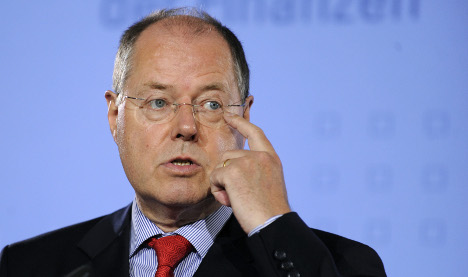“If the efforts of banks are not sufficient to supply the economy with enough fresh cash, the state will have to make use of other measures,” Peer Steinbrück told the Handelsblatt business daily in an interview.
“This includes putting the (state development bank) KfW in a position to give loans to banks but with the clear condition that the low interest rates are passed completely and verifiably on to the companies,” he said.
Steinbrück said that other instruments could include state export guarantees and government help for credit insurers.
“There is no proof of a comprehensive credit crunch across the whole economy but in some sectors – electronics, machinery, suppliers, chemicals and shipbuilding – conditions have definitely worsened,” Steinbrück said.
“We also have clear signs that things are tight for very small and big firms,” he said.
Germany exited its worst recession in six decades with growth of 0.3 percent in the three months to June but economists and companies have warned that the reticence of banks to lend money was hampering a continued recovery.
The paper cited an Economy Ministry report as saying that loans in the second quarter were up 0.2 percent compared to the previous three months, and that year-on-year the increase was 4.3 percent. Interest rates were up 0.35 percentage points in June, the newspaper noted.
Steinbrück also hit out at banks and institutional investors following the recent sharp rises on stock markets, saying they “obviously prefer putting money in shares than doling out loans.
“I see this as evidence that the gambling mentality is winning the upper hand again after two years of financial market crisis,” he said.



 Please whitelist us to continue reading.
Please whitelist us to continue reading.
Member comments